The following is an English transcript of the Radio-Canada interview with former OFAH student grant winner Christian Therrien, which was featured on the December 21, 2021 edition of Apres-Midi dans le Nord. The interview was titled “a bursary to study trout in Northern Ontario”.
This is a literal translation. Some nuances will be lost between French and English. You can CLICK HERE to listen to the full French-language version of the interview with Christian.
Isabelle: It’s now time to check in with associate editor Raphael Robitaille, who is interested in the efforts to re-establish certain types of fish in Ontario lakes. He has contacted a student who has received a prestigious bursary to do research in partnership with the University of Waterloo, Western University, the Ministry of Natural Resources and Forestry, Great Lakes Fisheries Commission, and the Ontario Federation of Anglers and Hunters. These are a group of organizations that came together to offer grants to support this research. Raphael sounds like you learned several things, I imagine, talking with this young man.
Raphael: Yes, yes, exactly I spoke with a young man named Christian Therrien, a Sudbury native who spoke to me about his research on Lake Ontario that comprised a study who find out if certain populations of lake trout, specifically, could be resistant to certain harmful compounds found in invasive species. Invasive species are one of the major obstacles in re-establishing several species of fish in Ontario. I wanted to thus learn why he was interested in this subject and why he is interested in fish.
Christian: I am originally from Sudbury and when I was a kid, I used to go fishing with my dad and grandpa at camp. I liked fishing so much, I decided to practice my passion full time. This decision to fish for a living led me down the path of research.
Raphael: Is the health of ecosystems that is something close to your heart?
Christian: Yes, I definitely value the health of ecosystems. Going out fishing since I was a kid, I saw firsthand fisheries change due to pollution-related to mining activities, climate change, and exotic species like rainbow smelt. In seeing these changes, I decided to dedicate my research to protect the native fisheries that are so important to me.
Christian, when asked about the efforts that exist to reintroduce certain salmonids into the Great Lakes: Right now, efforts concentrate on the reintroduction of lake trout, Atlantic salmon, and their native prey, the coregonids including whitefish and ciscos. These efforts include the culture and stocking of salmonids, the restoration of the habitats of the Great Lakes including areas where trout and salmon lay their eggs, the management of native prey fishes, and the control of exotic species like rainbow smelt, sea lamprey, and alewife.
Raphael: And could you talk about the obstacles facing reintroduction? 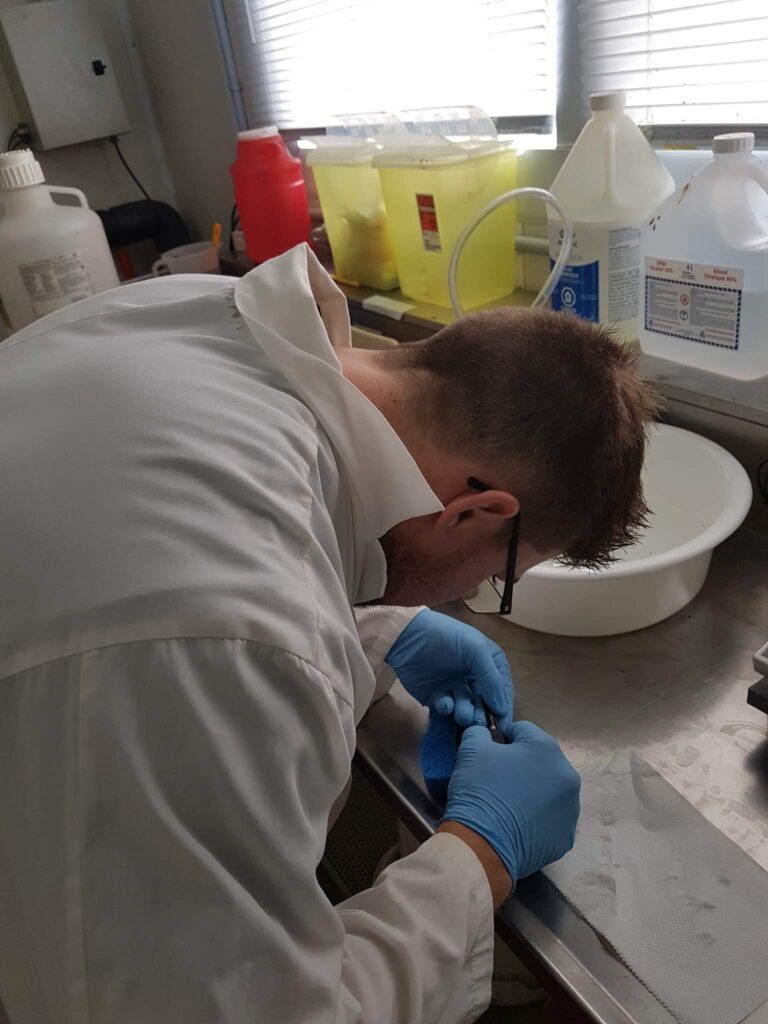
Christian: Yes, obstacles include climate change, habitat destruction, changes to the prey base for native predators, overexploitation, and exotic species. This last point, the effect of exotic species on native species is the focus of my research, specifically, the effects of rainbow smelt and alewife on lake trout. These exotic species, smelt and alewife, can replace the native pelagic prey base in the lakes where they invade and contain harmful compounds that cause health problems for trout that can ultimately lead to demographic consequences. These harmful compounds found in exotic species are thought to be a big reason for the difficulty in obtaining self-sustaining lake trout populations in Lake Ontario. If we can find lake trout populations that are tolerant to the harmful compounds found in exotic species, we can stock these populations in the hope of re-establishing self-sustaining lake trout populations in lakes where these invasive species have invaded.
To relate it back to Sudbury, there are several lakes in Sudbury where smelt have invaded, so this research is also important to fishermen in Sudbury.
Christian, when asked where smelt have invaded in the province: Rainbow smelt have invaded several lakes throughout the North and Northeast of Ontario and lakes in Northwestern Ontario around Thunder Bay.
Christian, when asked what the preliminary results of the research is showing: Overall, our preliminary results indicate that selecting candidate populations adapted to exotic species for reintroduction can help with lake trout reintroduction efforts into Lake Ontario and in lakes where exotic species have invaded. That means, when we are doing a reintroduction program somewhere in the province, if we find an exotic species in an area where we want to reintroduce lake trout or any other fish species, we can find a candidate population for stocking that could be adapted or has some experience with these exotic species in order it could help reintroduction efforts succeed.
Raphael: Again, that was Christian Therrien, native of Sudbury, who received a prestigious bursary in 2021 and is at the University of Waterloo and Western. He carried out some research in Lake Ontario focusing on determining if some populations of lake trout are tolerant to harmful compounds found in invasive species. He will be finished with this study in the coming months and will continue his work in Sudbury throughout the summer of 2022.
Isabelle: Raphael Robitaille, really, this is encouraging to see young people, especially from the North, put their hands in the dirt and help assure ecological and biological diversity of the Great Lakes. It’s really good news knowing that there are people prepared to do such niche studies to permit us to conserve the environment. What do you think?
Raphael: I agree. Mr. Therrien returned to school after working a career because it was something he was passionate about.
Isabelle: Thanks Raphael and we will talk tomorrow?
Raphael: Yes, talk to you tomorrow Isabelle!
OFAH STUDENT GRANTS 2022
The OFAH and partners award three different grants worth $4,000 each to university students researching fish and wildlife topics that are helping to improve resource management. Any graduate or post-graduate university student currently researching a fish and wildlife topic, and whose findings would benefit Ontario’s fish and/or wildlife management can apply for the following before the Feb. 11, 2022 deadline:
The OFAH/ Dave Ankney/ Sandi Johnson Award for Avian Ecology – $4,000
The OFAH Zone G Wildlife Research Grant – $4,000
The OFAH Zone H Fisheries Research Grant – $4,000

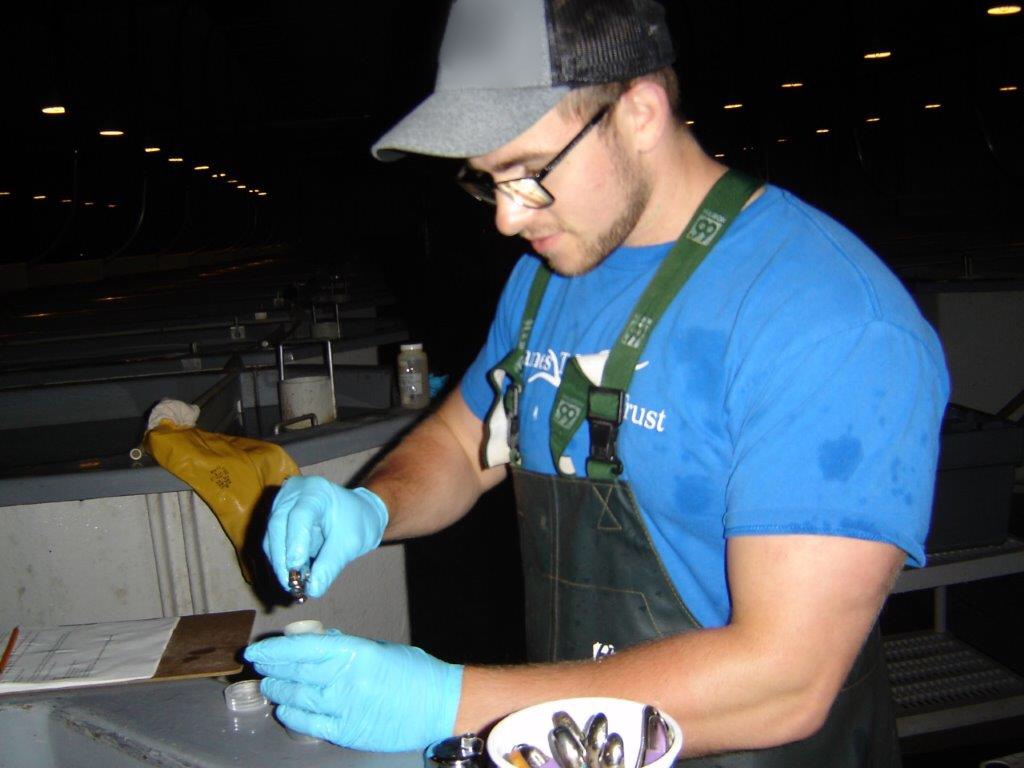
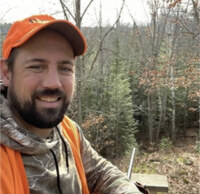
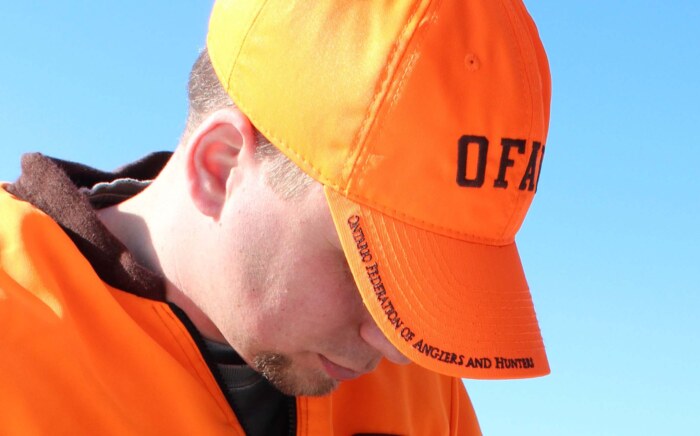
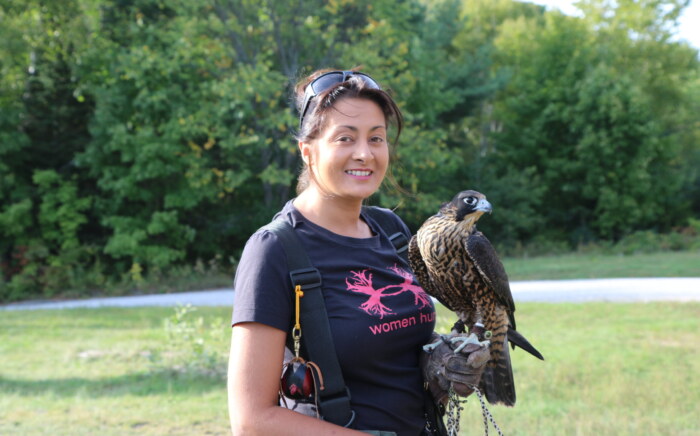

Leave a Comment